Iran and Afghanistan: A New Wave of Deportations
According to the International Organization for Migration (IOM), more than 256,000 people returned from Iran to Afghanistan in June alone. Moreover, this number is expected to increase further in July. Large-scale deportations could severely damage Afghanistan’s economy and social structure.
Politics
11.07.2025, 12:20
Share:
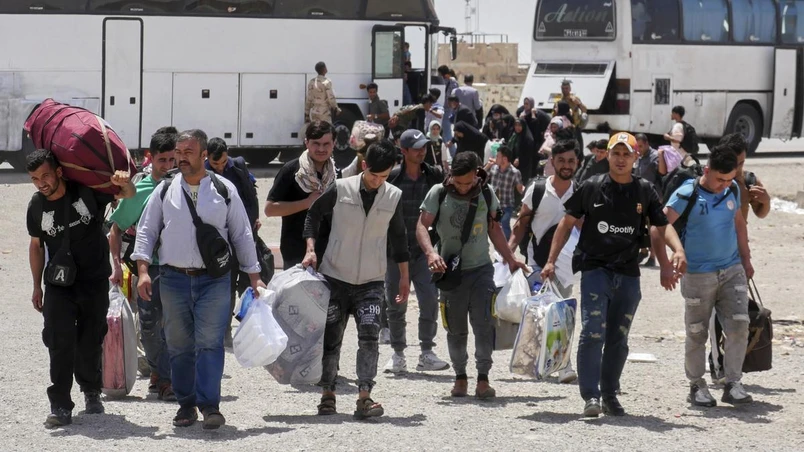
Social and Economic Burdens
The mass deportation of Afghan nationals by Iran began actively in 2023, alongside a similar campaign in Pakistan. The primary reasons cited are increasing economic and social pressures, especially in border areas. Official statistics estimate that around six million Afghans reside in Iran, but unofficial estimates, accounting for undocumented migrants, suggest the figure may exceed ten million.
According to approximate estimates, the “Afghan issue” costs Iran around 0.9–1.2% of its annual state budget. Member of Parliament Hamidreza Azizi has stated that the government spends about 7,000 trillion rials annually on subsidies for energy, food, healthcare, and education for Afghans. He also claimed that Afghans have flooded the labor market, leaving thousands of Iranians unemployed.
Politically Convenient Justification
Following the conclusion of the “12-day war” with Israel, Iran significantly intensified its deportation of Afghans. This move is linked to both economic losses and the need to reduce domestic expenditures. Analysts estimate Iran’s total direct and indirect losses from the conflict to be between 24 and 35 billion USD — roughly 6.3–9.2% of the country’s GDP.
With the need to rebuild damaged infrastructure, the government seeks to minimize non-priority expenses, including support for the Afghan diaspora.
One of the key arguments for accelerated deportation has been allegations of Afghan involvement in Israeli intelligence operations. According to officials and media reports, some Afghan migrants allegedly participated in organizing attacks, managing drones, gathering intelligence, and installing explosive devices. However, aside from video confessions of a few detainees, no substantial evidence has been presented to support these claims.
A Favorable Environment for Deportation
Pakistan’s mass deportation of Afghans has created a favorable environment to legitimize Iran’s own deportation policies. As of May 16, 2025, Iran had deported 1,934 Afghans and Pakistan 1,423. However, following the start of the Iran-Israel conflict, these numbers surged: between June 21 and 28, Iran alone deported over 131,000 Afghans — an average of 30,000 per day, 15 times more than in May.
July 6, 2025, marked the final deadline for all undocumented Afghans to leave Iran, with the government threatening coercive measures thereafter. Similarly, Pakistan declared June 30 as the deadline for deporting 1.3 million Afghans and plans to expel up to 3 million by the end of the year. The “synchronization” of these policies aims to reduce international pressure and rapidly offload the “burden,” especially as Iran launched its campaign amid Pakistan’s actions.
Dire Consequences for Afghanistan
The mass deportation of Afghans from Iran and Pakistan presents a “double blow” to Afghanistan, threatening a humanitarian catastrophe. The increasing influx of returnees, coupled with declining international aid, could destabilize the country.
By the end of 2023, both countries had deported over 850,000 Afghans, and between March 2024 and March 2025, Iran alone expelled more than 1.12 million people. International organizations such as the UN, IOM, and the Norwegian Refugee Council (NRC) have expressed concern over the emerging crisis. Humanitarian aid to Afghanistan has dropped from $3.2 billion to $538 million, significantly limiting the country’s capacity to respond to emergencies. The UN Assistance Mission in Afghanistan (UNAMA) warns that most returnees lack property, access to basic services, or employment opportunities, and their mass arrival may further strain the country’s already critical situation.
The Taliban’s Ministry for Refugees and Repatriation has repeatedly announced repatriation programs that would allocate land in returnees’ provinces of origin. However, analysts note that despite these programs, the scale of deportations, limited resources, and lack of humanitarian support are likely to create severe challenges.
In conclusion, amid the sharp rise in deported Afghans and declining international assistance, Afghanistan faces the threat of a major humanitarian and economic crisis. Given its limited resources and weak infrastructure, the country is unlikely to cope with the challenges without external support. The uncontrolled return of migrants from Iran and Pakistan could destabilize the socio-economic situation and delay critical infrastructure and economic projects, as the Taliban government would have to redirect substantial funds to maintain internal stability. In this context, the role of Central Asian countries becomes particularly important, as they could provide essential humanitarian aid and help alleviate the crisis while fostering stable, neighborly relations with Afghanistan.
Bositkhon Islаmov
Center for Afghanistan and South Asian Studies (CASAS)
Institute for Advanced International Studies (IAIS)
Politics
11.07.2025, 12:20
Share:
Similar news
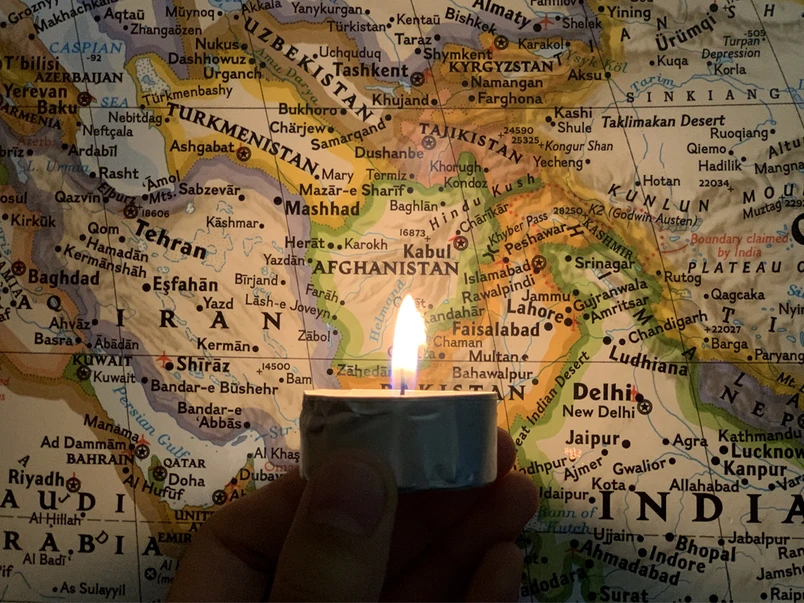
Afghanistan on the Geopolitical Chessboard of the Middle East
World
01.07.2025, 13:07

Escalating Israel-Turkey Tensions or the "Neo-Ottomanism" Policy
Politics
12.04.2025, 13:43

Washington and Kabul: Is a New Chapter in Relations on the Horizon?
Politics
25.03.2025, 16:16
Latest news

Paradigma Media Honors Eight Voices in Journalism and Civil Society
Cultural
02.02.2026, 19:18

Canadian singer David Carroll addresses Uzbeks
Uzbekistan
25.10.2025, 14:19

Man Caught Smuggling 5.2 Billion UZS Worth of Gold Jewelry from Kyrgyzstan into Uzbekistan
Uzbekistan
18.07.2025, 10:07
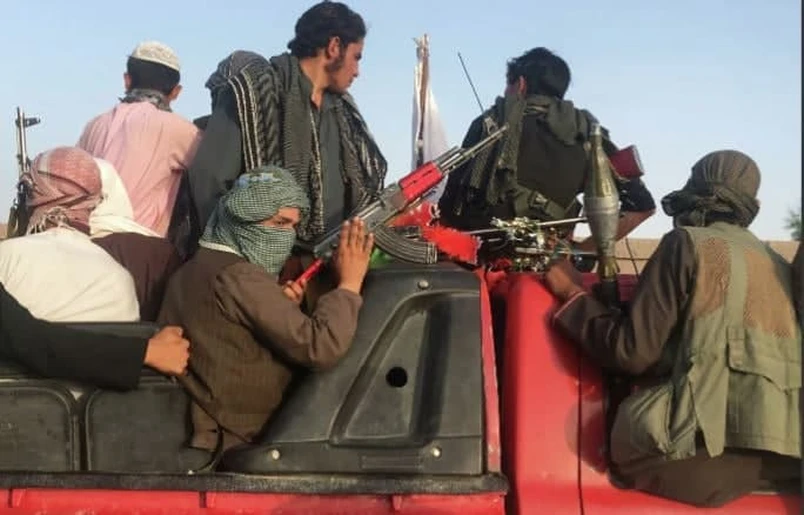
Are the Taliban's actions in Badakhshan part of their foreign policy tactics?
World
15.07.2025, 10:57

Afghanistan on the Geopolitical Chessboard of the Middle East
World
01.07.2025, 13:07

The Impact of India’s Nationalist Policy on Domestic Political Stability and Territorial Integrity
Politics
30.06.2025, 11:38
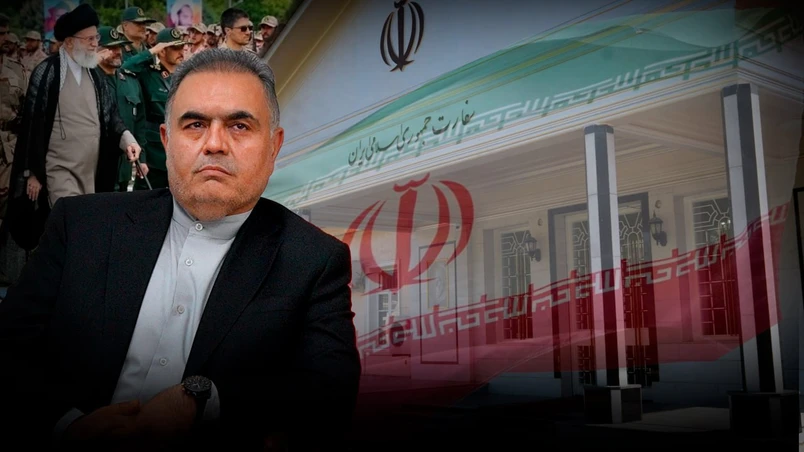
Embassy Statement: The U.S. and Israel Bear Full Responsibility for All Such Conflicts
Politics
25.06.2025, 13:18

Trump Calls for Iran’s Unconditional Surrender – NYT
World
18.06.2025, 00:53

G7 Fully Supports Israel – Media Reports
World
17.06.2025, 14:44
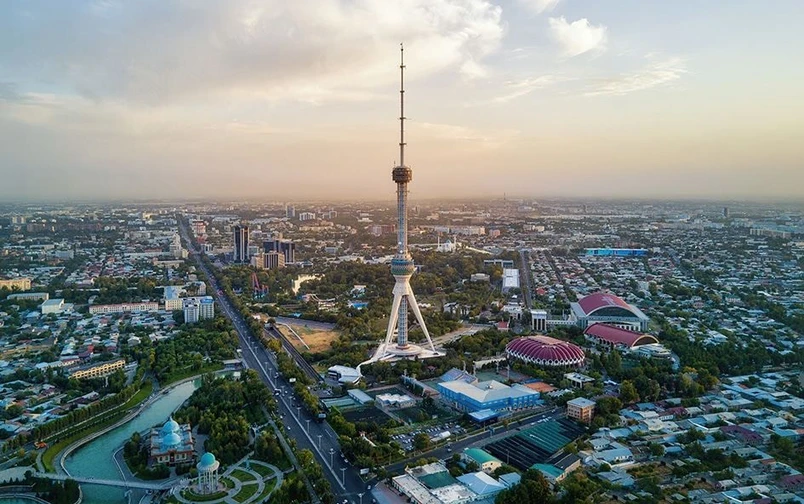
In Afghanistan, Abandoned by NATO and the U.S., Uzbekistan Implements a New Strategy
Politics
09.06.2025, 15:47

Eric Meyer, Senior Official of the U.S. Bureau of South and Central Asian Affairs, to Visit Uzbekista
Politics
09.06.2025, 13:53

